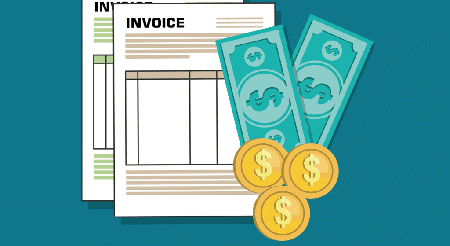Finding financing for your business can be challenging. Whether you’re looking for financing to start a new business, expand your existing business, or to pay your bills to get you through a rough patch.
At some point your business is going to need some extra capital.
The capital is out there to help your business, you just need to know where to look.
This capital for your business can come from a variety of options. The options to pursue depend on several factors.
But where do you look, and which option(s) are best for you?
We’ve compiled a list of various financing options for your business.
Business Grants

What is a Business Grant?
A Business Grant is money given to a business by the government, an organization, or a person for a specific purpose, meaning the money given must be used according the grant guidelines. Unlike a loan, money given through a grant does not need to be paid back unless you fail to follow the guidelines of the grant.
Advantages of Business Grant
- You will not need to pay the money back
- You will not need to give up any control of your company
Disadvantages of Business Grant
- Competition is tough. There are a limited number of available grants each year and there are thousands of people/companies applying
- The process is very time-consuming. If you need capital fast, then a business grant is not for you. The process of getting approved for a specific grant could take up to a year.
- You must adhere to the strict guidelines on how you can spend the grant money
- The amount of the grant is set. This may not be enough to cover your project’s cost, thus you will need to find another source for additional funding
How To Get a Business Grant
To receive a business grant you need to know where to look, determine if you will qualify based on the grant guidelines, and then complete the grant application.
Here are a few resources to find business grants:
- Small Business Administration – the SBA works with organizations to provide grants for small businesses
- Grant.gov – a database of federally sponsored grants
Here are a few specific annual business grants:
- FedEx Small Business Grant – FedEx will award 10 small businesses up to $25,000
- Eileen Fisher Women-Owned Business Grant – awards a total of $100,000 to up to 10 women-owned businesses each year
Conclusion for a Business Grant
If you find a grant that fits your business needs, you have a strong case to qualify, and you can wait for the funding, then a business grant is clearly the way to go. Essentially, it’s free money – no more needs to be said.
Angel Investor

What is an Angel Investor?
An Angel Investor is an individual looking at your company as an investment. They provide you with capital in exchange for an equity stake in your company.
An Angel Investor needs to meet specific criteria defined by the Securities Exchange Commission (SEC). They need to have a net worth of at least $1 million and earn an annual salary of $200,000.
Companies seeking an Angel Investor are typically beyond the startup phase, they’ve been generating steady monthly revenue, but need additional capital for marketing, product development, or purchasing more inventory/equipment.
Advantages of Angel Investor
- The money is not a loan. If your company starts growing, you both win. If it fails, you do not need to pay back the Angel Investor.
- Angel Investors could be a good business resource. They have years of experience you can tap into.
Disadvantages of Angel Investor
- You give away a portion of your company. Typically, anywhere between 10% – 50%, depending on how much capital is provided. At some point the earnings may far exceed the investment amount.
- You will not be in full control of your business. The Angel Investor is going to want a say in how your business is run and how the money is spent.
- You may receive some opposition on how you are running your business.
- Finding an Angel Investor who wants to invest in your specific business may be a challenge.
How to find an Angel Investor
Many Angel Investors like to be involved in the business, so they like to invest in businesses that are close. So do some local research.
Network. Meet as many people as possible by going to trade shows, events, join a local chamber of commerce.
There are also online resources you can investigate. One of the top online sites is Angel Capital Association – they provide resources and tips on finding an Angel Investor. Plus their network includes over 14,000 angels and over 275 angel groups.
Conclusions for Angel Investor
There are a few reasons to consider an Angel Investor:
- You need capital to take your company to the next level.
- You need help running your business. Maybe you developed a revolutionary new product, but you don’t know how to market it or you need help automating some process. The right Angel Investor would be able to help.
If the pluses of the above reasons outweigh giving an ownership stack plus some control on the day to day decisions, then an Angel Investment may be the way to go.
Financing through an Alternative Lender

What is Financing With Alternative Lender?
There are several types of funding options – Working Capital Advance, SBA Loan, Line of Credit, Term Loan. Your options depend on how quick you need funding, how long you’ve been in business, the funding amount, and your personal credit score.
Small Business Funding has Funding Managers that will partner with you to determine which option is best for you.
Advantages of Financing With Alternative Lender
- Quick funding – In most cases you will have a decision within 24 hours and funding within 72 hours
- Minimal paperwork is needed
- Put more emphasize on the health of your business and less on your personal credit score
- Access to unsecured business funding solutions
Disadvantage of Financing With Alternative Lender
- The cost for financing is typically higher than a traditional bank
How do you find Financing With Alternative Lender
You can complete a no obligation funding request form with Small Business Funding. If pre-qualified, a Funding Manager will be in touch to discuss your options.
Conclusions for Financing through an Alternative Lender
If you don’t want to give up an equity stake in your company and you need funding quickly, financing with an alternative lender may be your option.
Other reasons to consider an alternative lender is you have a healthy business, but you’ve been declined by a traditional bank or your credit score is not strong.
Factoring

What is Factoring?
Factoring is a financing method where a business owner sells accounts receivable to a third-party funding source to raise capital.
For example, you would make a sale, fulfill the product or service, then invoice the customer. A third party would then buy the right to collect on that invoice by agreeing to pay you the value of that invoice minus a discount.
You receive money for that invoice immediately without having to wait the terms of that invoice to get paid.
Advantages of Factoring
- Immediate cash flow. You can then use that cash for business operations such as purchasing materials or payroll.
- It will not require collateral.
- Factoring is becoming more popular, so the rates are more competitive.
Disadvantage of Factoring
- High costs. The factoring company will pay you a discount on the value of the accounts receivable. Plus, factoring companies also change an interest on the cash advance.
- Your customers will pay the factoring company directly. Some customers may prefer dealing directly with you and could be turned off by the idea of paying someone else.
How to get Factoring
Small Business Funding has financial partners that offer factoring as a service. We’ve done the research and vetting for you.
Conclusions for Factoring
If month after month you find yourself needing fast capital as you wait for your invoices to be paid, then factoring may be right for you.
Crowdfunding

What is Crowdfunding?
Crowdfunding is a way for individual or business to invest or donate to a project in return for a reward or profit. It’s not just an individual investing (or donating), it is multiple parties (hence the “crowd”) providing money for your project.
There are several different types of Crowdfunding:
- Loan-based – a loan is made to you with a set interest rate paid back
- Reward-based – you provide a reward in return for the money. An example of this might be a free product that you are designing
- Donation-based – money is given to you for a project as a gift
- Investment-based – you provide investors a small equity stack in your company
Advantages of Crowdfunding
- Can be a quick way to generate capital for a project.
- Your investors may become your customers. Individuals who provide companies money are typically doing so because they believe in the product/service.
- Sharing your idea may generate valuable feedback
Disadvantages of Crowdfunding
- You will need to do a lot of work to have your project standout and to build interest.
- If you fail to reach your funding target, which you set, any financing that has been pledged will be returned to the investors.
- If it’s a new product, you are putting it online prior to its launch. This could lead to people copying your idea.
How to find Crowdfunding
An online search will yield some options. The most well-known Crowdfunding site is Kickstarter.
Conclusions for Crowdfunding
Crowdfunding isn’t for everybody. If you need funding to purchase equipment, make payroll, additional marketing, or overall business operations, then crowdfunding is not your option.
However, if you have a single project that will have mass appeal that you need funding for, you may want to consider this option.
In order to be successful raising money through Crowdfunding, you need something that many people can get behind. As an example, Crowdfundingblog.com has a list of the most successful crowdfunding campaigns.

